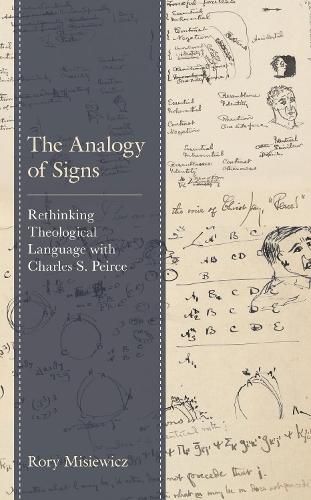Readings Newsletter
Become a Readings Member to make your shopping experience even easier.
Sign in or sign up for free!
You’re not far away from qualifying for FREE standard shipping within Australia
You’ve qualified for FREE standard shipping within Australia
The cart is loading…






The longstanding debate over how God-talk is intelligible gravitates around how we should understand the putative answer, by analogy. For some contemporary Christian theologians, analogy involves an ontological claim about creaturely and divine being (i.e., an analogy of being). For others, it involves a semantic or syntactical structure that legitimates the linguistic performances associated with analogy (i.e., a grammatical analogy). Still others appeal to faith in God’s self-disclosure in Jesus Christ (i.e., an analogy of faith).
Rory Misiewicz argues that all of these approaches fall flat in their explanatory efforts. He draws upon the work of American philosopher Charles Sanders Peirce to rethink the relation between God and human beings. He argues that Christian theologians may view that relation as being established by an analogy of signs : both God and human beings are univocally involved in semiosis, or sign-process, and the confirmation of God’s semiotic identity is found in the revelation of God in the person of Jesus, the incarnate Son of God. Therefore, ordinary analogical language is intelligible, for divine signs are commensurate with human signs.
$9.00 standard shipping within Australia
FREE standard shipping within Australia for orders over $100.00
Express & International shipping calculated at checkout
Stock availability can be subject to change without notice. We recommend calling the shop or contacting our online team to check availability of low stock items. Please see our Shopping Online page for more details.
The longstanding debate over how God-talk is intelligible gravitates around how we should understand the putative answer, by analogy. For some contemporary Christian theologians, analogy involves an ontological claim about creaturely and divine being (i.e., an analogy of being). For others, it involves a semantic or syntactical structure that legitimates the linguistic performances associated with analogy (i.e., a grammatical analogy). Still others appeal to faith in God’s self-disclosure in Jesus Christ (i.e., an analogy of faith).
Rory Misiewicz argues that all of these approaches fall flat in their explanatory efforts. He draws upon the work of American philosopher Charles Sanders Peirce to rethink the relation between God and human beings. He argues that Christian theologians may view that relation as being established by an analogy of signs : both God and human beings are univocally involved in semiosis, or sign-process, and the confirmation of God’s semiotic identity is found in the revelation of God in the person of Jesus, the incarnate Son of God. Therefore, ordinary analogical language is intelligible, for divine signs are commensurate with human signs.